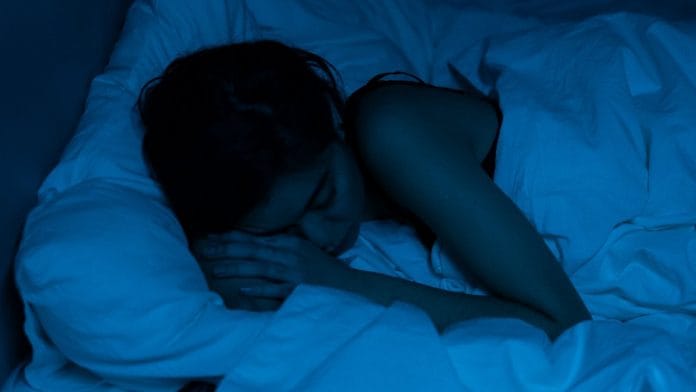Bengaluru: The use of electronic media and devices is leading to delayed bed-time and poor sleep quality among children, especially those between six and 15 years of age, a recent review has revealed.
The team of researchers, from the University of Southern Denmark, found that in children aged five and under, media use and shorter sleep were associated with television and tablet use, while 6-15 year-olds, had trouble falling asleep due to continuous use of a variety of electronic media — cellphones, computers, being online on various devices, and video games.
Adolescents aged 13 to 15 also showed evidence of a link between electronics use and trouble falling asleep, while kids aged six to 12 consumed more television which delayed their bedtime and resulted in poor sleep quality.
The findings were made by conducting a review of 49 studies published between 2009 and 2019, involving over 3,69,000 children from high-income countries. The results are published this week in the journal BMC Public Health
To understand how the use of electronics affects sleep, the authors considered parameters like bedtime and onset of sleep, quality of sleep, duration of sleep, and daytime sleeping duration.
For children aged five or less, the use of electronic media was primarily through television and tablets.
Children under the age of 12 delayed their bedtime and had poor sleep quality, both due to watching television. Among many teenagers, there was an association between viewing television and the taking of longer naps during the day. However, there was no association with television use and trouble falling asleep.
Teenagers aged 13-15, however, had trouble falling asleep, primarily because of social media use. The researchers say that this is likely because the interactive media is too overstimulating and the blue light from devices suppresses melatonin production, which promotes sleep.
Another way that media use interferes with sleep is through time replacement, where time spent on screen replaces time spent sleeping, without compensating for lost sleep each night.
The paper concludes that interactive forms of electronic media like the internet and social media have a much more adverse effect on sleep quality and ability to fall asleep than passive consumption of television.
The study, however, is limited by the fact that it was a review conducted of existing, well-designed studies and not a randomised controlled trial by itself. There is also the possibility of children and adolescents simply experiencing bedtime procrastination without external reasons, and just incidentally use electronic media before sleeping.
The study also did not account for those who used their devices to actually help them go to sleep. Additionally, self-reported and parent-reported data about teenagers sleeping have been known to be inaccurate, with both groups over-reporting duration or quality of sleep.
(Edited by Paramita Ghosh)
Also read: Why Cyclone Gulab is an exception as a rare September cyclone in the Bay of Bengal






